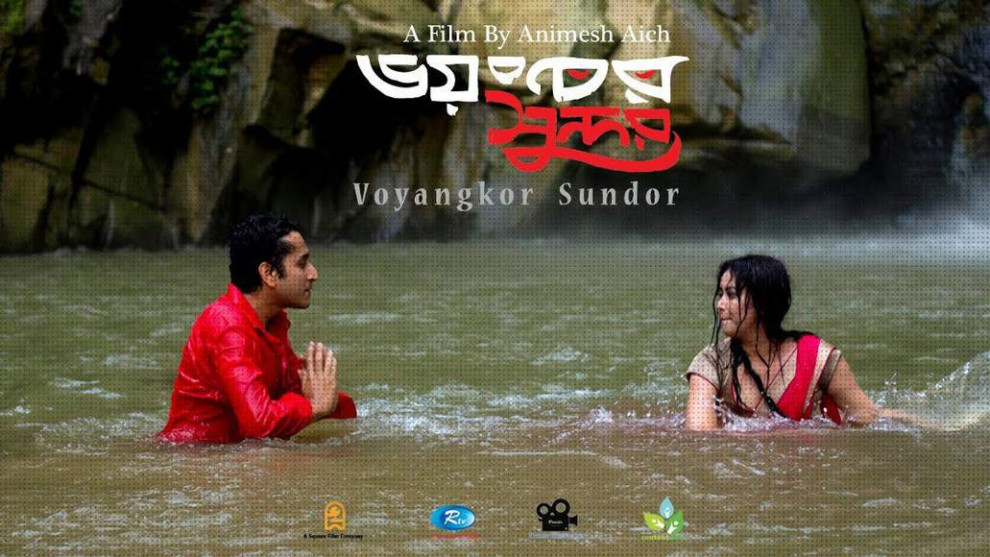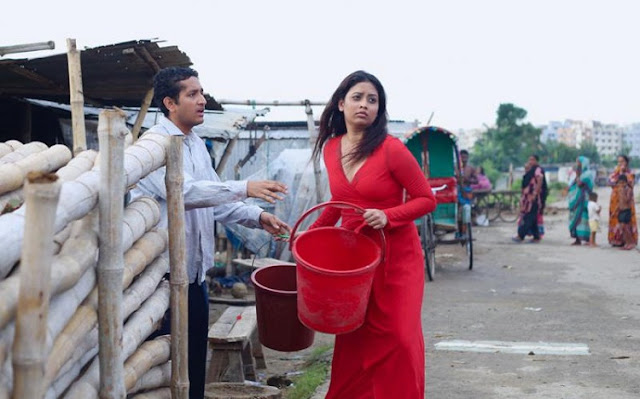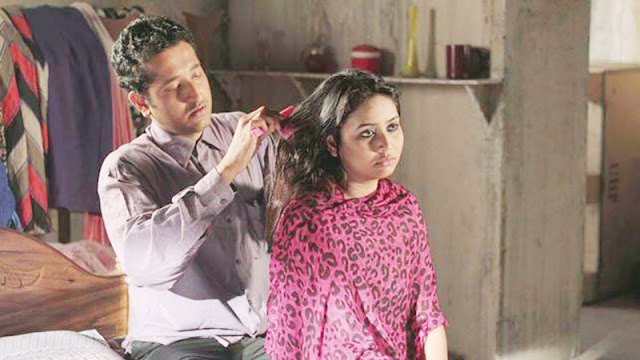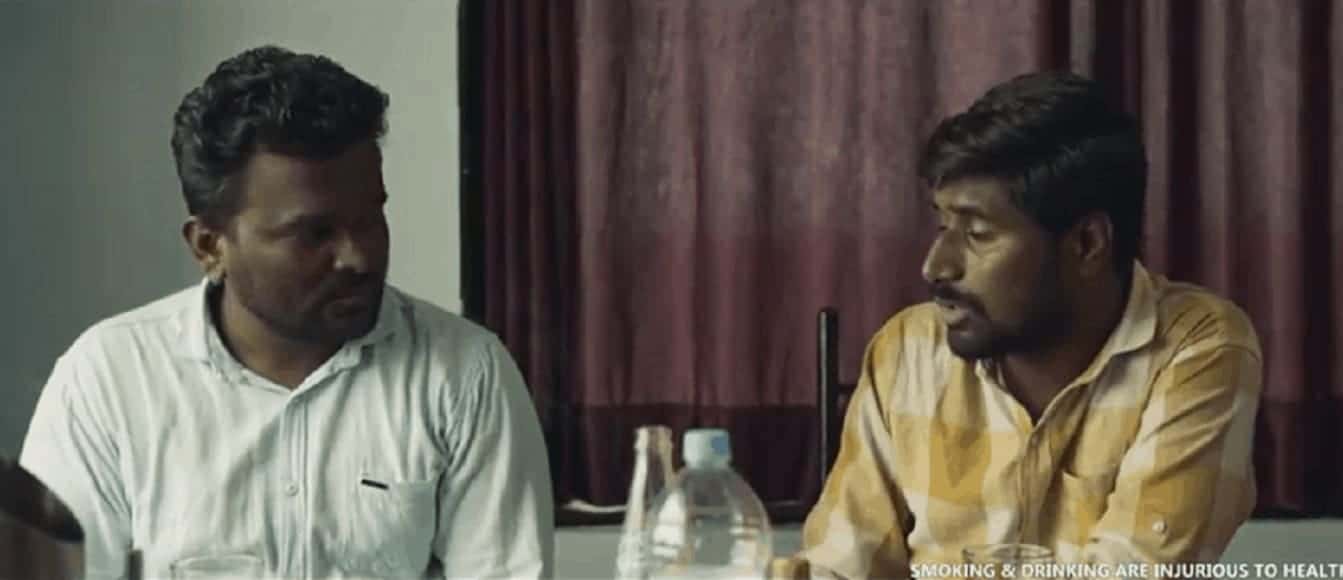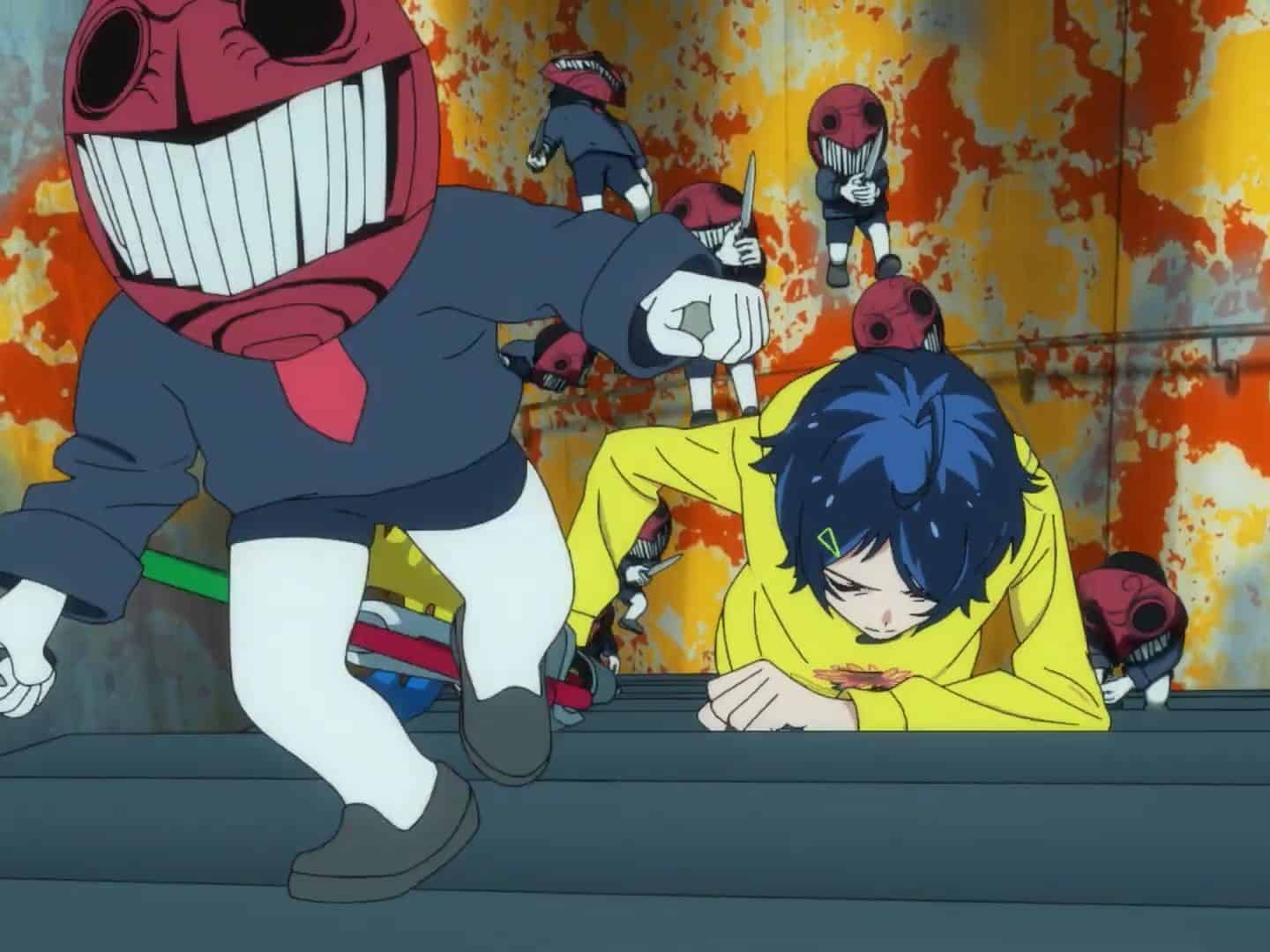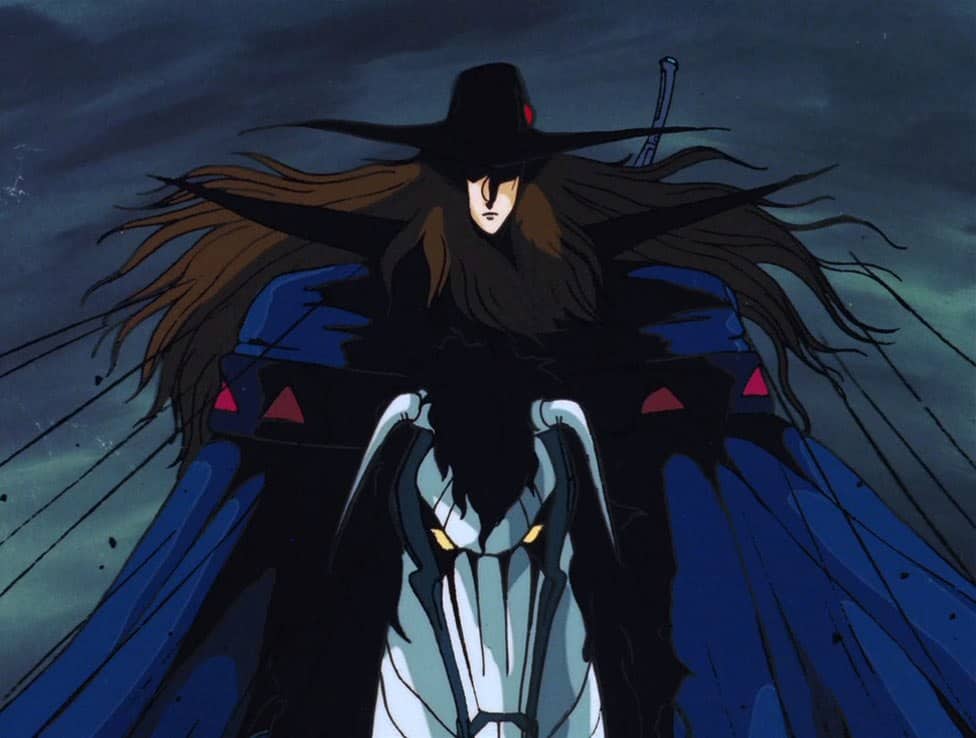Having a famous TV movie and drama director on its helm, and featuring an Indian Bengali (Parambrata Chatterjee) and Bangladeshi (Ashna Habib Bhabna) duo as the main protagonists, “Killing Beauty” seemed like a very interesting film. Let us see if it fulfilled its hype though.
The script is based on Moti Nandi's novel “Joler Ghurni O Bokbok Shobdo” and revolves around an unlikely couple, Muku Nandi and Nayantara. The latter is a rich and spoiled girl, who flees her household for Dhaka, due to her father's violent behaviour, resulting from her denial to marry the man he suggests. Not knowing much about the actual world, she ends up in a rundown hotel, where she meets Muku, a groom who actually takes care of everything in the establishment. After getting over the shock of dealing with a non-protected environment, Nayantara starts having feelings for Muku, who is more than eager to reciprocate, despite his timid nature.
When a guest of the hotel threatens to rape Nayantara, Muku comes to her rescue and the two flee, ending up in an even more rundown house in a slum. Despite being fired from his job, Muku soon finds another hotel to work, in order to take care of his spoiled wife, although she eventually seems to get used to her new circumstances, even denying her family's pleas to come back to her riches.
Their situation changes radically when draught hits Dhaka hard, with the search for water becoming a violent game, which Nayantara experiences first hand. After this experience, the woman seems to lose her grip with reality, as she decides to exact revenge in a very unusual way.
Animesh Aich directs and adapts a film that is distinctly dichotomized, with the draught serving as the splitting point. The first part functions much like a TV drama, even reaching the borders of the soap opera, with its quirky script, melodramatic romance, and general lack of coherence and logic. At times, I felt as if the director wanted to get over fast this part in order to get to the second. The segment is partially saved by Emon Saha's fitting and very atmospheric music and Chatterjee's acting, as he presents, quite convincingly, a timid man who goes against his nature, guided by love.
The second part, however, features a rather radical change, as drama and realism take over, in the presentation of life in the slums of Dhaka. The life of the poor in the capital of Bangladesh is quite well portrayed, while Nayantara experiences the violence of having to survive on limited resources first-hand, in a dog-eat-dog world. The scene where she is assaulted by a number of women, who ridicule and beat her due to her rich clothes and “aristocratic” behaviour, is the most memorable in the film. However, Aich does not use this event as a wake-up call for Naya, instead he presents the consequences of violence to an individual, since the victim actually loses her grip to reality completely, after this experience.
After that, the film seems to lose its attachment to realism once more, taking a kind of surrealistic path, again succumbing to incoherence, with the ending being the apogee of this trait. My take is that Aich wanted to make a social comment, but he somehow lost his sense of measure, only managing to keep it for a little while, thus resulting in a highly unbalanced film.
This however, does not mean that the movie is void of benefits. The presence of the old coolie serves quite well in portraying the everyday life in the streets of Dhaka, Emon Saha's music is wonderful all the way, and the same applies to Chatterjee's performance, although in the second part, he takes a secondary role to Habib Bhabna. Regarding her part, her transformation from a spoiled, mislead but determined girl to a disillusioned and subsequently to an almost mad woman, is quite good and the actual highlight of her performance, along with the violent scene. For the most part though, I found her performance a bit excessive and somewhat detached from the setting of the film.
Khair Khandakar's cinematography is also quite good, as he manages to capture both the blights and the beauties of Dhaka, including some very impressive, panoramic shots.
“Killing Beauty” has its benefits, but the faulty narrative and the director's TV drama past, unfortunately, do not let them shine. There is potential here, particularly shown in the second part, but Animesh Aich will have to choose the way he wants to follow, since cinema is a whole other business.


